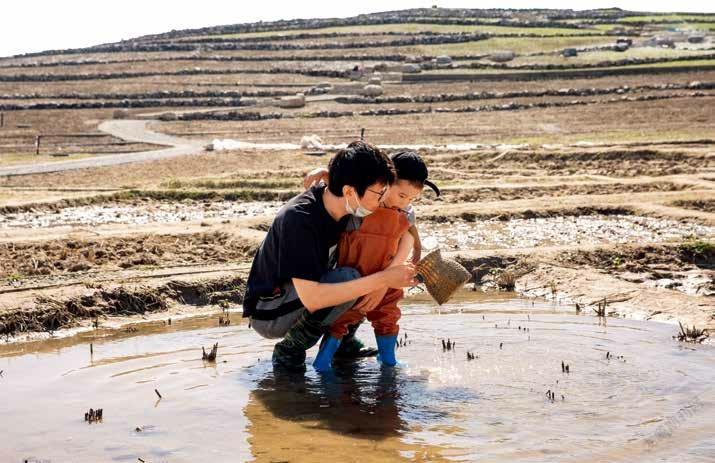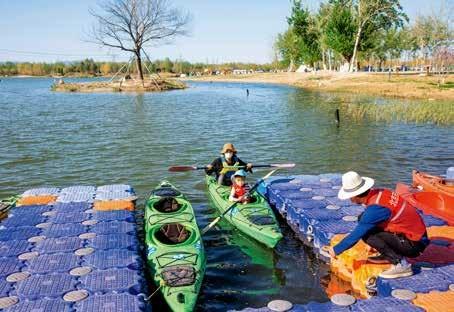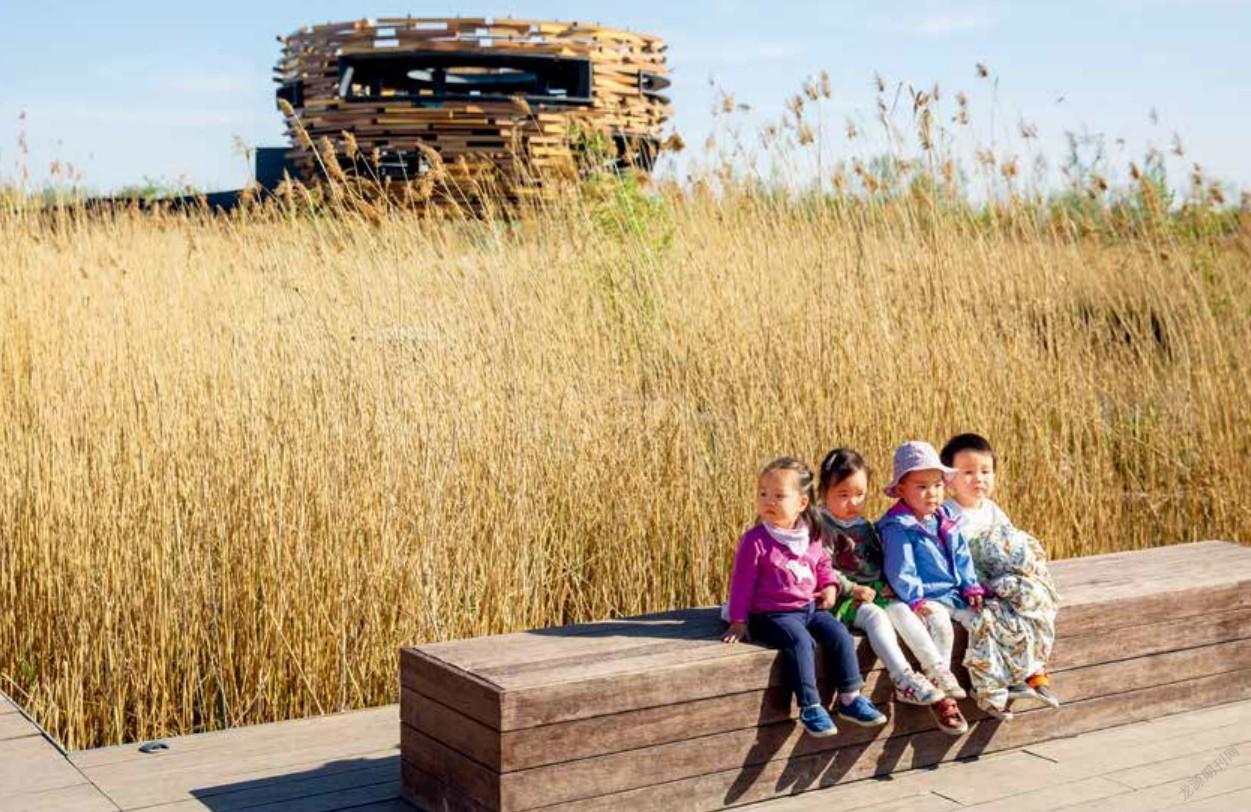In Touch with a Scenic Park
2022-06-17byQuanJingyi
by Quan Jingyi
About 20 kilometers northeast of downtown Beijing, the Chaoyang Demonstration Area of Wenyuhe Park welcomes more than 10,000 tourists each day, and much more on holidays. The“waterside tour” has become a favorite to share with family and friends.
Built along the Wenyu River, the in-process park that spans Beijings Chaoyang, Shunyi and Changping districts functions as both an important ecological corridor and flood-control channel, and brings about a vibrant waterside life to local residents.

Green-Oriented Transformation
The Wenyu River served as a vital transport artery for grain to reach northeastern Beijing during the period from the Han Dynasty(202 B.C.-220 A.D.) to the late Qing Dynasty (1644-1911). It played a key role in stabilizing the political context and boosting regional economic development. Across centuries, the Wenyu River has not only nourished the environment with running water, but also delivered high-quality sediment. Sunhe Township at the junction of Chaoyang, Changping, and Shunyi districts developed from an ancient ferry at the Wenyu River. The unique location of Shaziying Village in Sunhe Township near the river brought an industry of sand and gravel production featuring numerous factories and mixing stations, attracted by the areas high-quality sand. However, the booming industry adversely affected nearby residents, and long-term operation of sand washing and refining seriously restricted the sustainability of the local ecological environment. In 2014, the township launched a campaign targeting local gravel factories. It resulted in all relevant factories being shut down and the surrounding environment improved in just a year.
Meanwhile, Chaoyang District started building urban parks to explore innovative ecological management. In early 2016, a park project along the Wenyu River covering nearly 50 hectares was completed, with 75,000 trees planted. Today, the five villages used to rely on sand production in Sunhe Township have been transformed into “urban oases”composing Wenyuhe Park.

The Pulse of Water
The detention basin in Wenyuhe Park is an integral part of the Tongzhou Dam system to divert floods by temporarily storing discharged rainwater during a heavy downpour. With maximum storage of up to 12 million cubic meters of water, it can greatly improve the floodcontrol efficiency in the lower reaches of the Beiyun River.CB01F5E6-8224-48DA-B2C0-8B4DC33D85A2
Additionally, the park created a waterfront space according to the concept of “co-governance of water and vegetation.” Through a trail, people can enter a wild wetland with clear waters, lush reeds and wooden bridges as well as lawns and flowers.
The park acts as a giant“sponge” to store rainwater. The footpaths in the park are paved with “sponge bricks” made of recycled construction wastes, which allow rainwater to seep quickly into the ground. Collected rainwater is used to irrigate green spaces and roadside foliage, as well as recharging underground water thanks to an ecological adjustment pool. After the flood season, purified rainwater flows into the river alongside recycled water, bolstering the water circulation system. Today, the Chaoyang Demonstration Area of Wenyuhe Park has essentially achieved a control rate of 90 percent of total annual runoff, ensuring no discharge during a heavy rainfall once in five years.
Vibrant Waterside Life
Since its launch in 2020, the park has welcomed increasingly rich biodiversity, evidenced by several species of rare animals settling there. In April of this year, experts spotted two bustards, an endangered species under first-class state protection in China, in the park. Several black swans were also found settling there. Experts tallied a total of 67 bird varieties living in the park in 2021, which testified to the significantly improved biodiversity. The parks position as an ecological hub of Beijing has been further cemented.
With the increased biodiversity and reviving forest wetlands, some scenic spots in the park have quietly emerged as nature education hotspots. The Langkun Bookstore, for example, has integrated an ecological classroom into the park where teenagers can sit on the ground to read illustrated books on flora and fauna, experience hand-painting of plants under the instruction of famous painters, and learn ecological knowledge from botanists and bird professionals. In the parks West Garden, the Bird House, a watching tower resembling a giant birds nest on a reedy wetland, appears quite novel and unique when viewed from a distance. After scaling a long sloping staircase from the shore, tourists linger on its platform to relish the scenic garden from every direction and take in the lake, birds, and the sunset from afar.

In the near future, the main stream of the Wenyu River will develop into an ecological corridor stretching nearly 50 kilometers and covering about 150 square kilometers. After completion, the 30-squarekilometer Wenyuhe Park will become Beijings largest “green lung,” offering residents a scenic place to enjoy.CB01F5E6-8224-48DA-B2C0-8B4DC33D85A2
